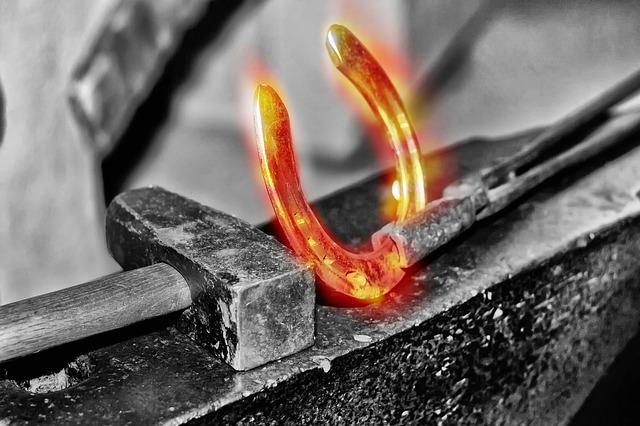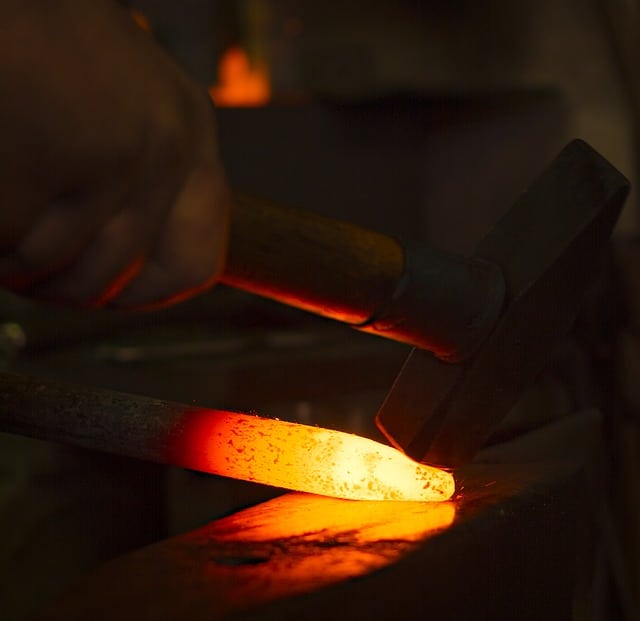
Forging can consist of giving shape to a metal using hammer blows.
To discover the meaning of the term forge it is necessary, first of all, to know its etymological origin. In this case, we can emphasize that it derives from French, exactly from the Gallic verb "forger", which can be translated as "make".
The term has different uses depending on the context.
Forging with hammer blows
The action of forging can refer to the act of shaping a metal with hammer blows . Forging, in this sense, consists of molding an element cold or hot using compression forces and impacts.
It can be said that forging is one of the artisanal jobs carried out by the blacksmith or forger . Using a hammer and fire , the smith can shape metals and alloys. For this, it usually has a forge (to heat the metal), a container (to cool the forged piece), an anvil , a hammer and tongs . The blacksmith heats the metal in the forge, holds it with tongs and hits it with the hammer on the anvil to forge it. When the piece is forged, he tempers it in the container.

The action of forging usually requires the use of a hammer and an anvil.
Different types of jobs
Precisely when forging is referred to as a manufacturing process of all types of elements through the use of metals, we find that the result is none other than forging work. This, which can be of various types (isothermal, free, stressed or stamped), gives rise to very varied and widely used elements.
Specifically, among the items that can be obtained in this way, there are headboards for beds, bars for windows and balconies, benches for outdoor spaces, chair backs...
In the field of architecture and construction , on the other hand, the idea of forging is used with respect to forming, manufacturing, plastering, raising or building.
Forge how to achieve or establish
In colloquial language , forge is equivalent to establishing, creating or achieving . For example: "I believe that, as time goes by, we will be able to forge a friendship" , "International conditions allow us to dream of forging a prosperous future for our country" , "A political leader must forge consensus and reach agreements that make it possible to work for the common good .
Suppose a journalist is reviewing the career of a footballer. When analyzing his beginnings, he states that the athlete began to forge a successful career when, together with his country's national team, he became youth world champion. As you can see, forging in this framework refers to building or foundation.
No less relevant is establishing that, sometimes, the outstanding and outstanding acts carried out by a person in a specific field can lead to the forging of their legend. Thus, for example, it is established that the victories achieved by Rodrigo Díaz de Vivar (1048 – 1099) in the Iberian Peninsula led to the forging of his legend, that of El Cid Campeador or El Campeador. Precisely this legend has given rise to unique episodes or anecdotes such as the one that establishes that he even defeated his enemies when he was already dead.
Among the synonyms of forging, therefore, we find words such as forge, cast, devise, conceive, project, mold or metalize, among others. On the contrary, among its synonyms are terms such as laziness, adulteration, usurpation or loafing.
